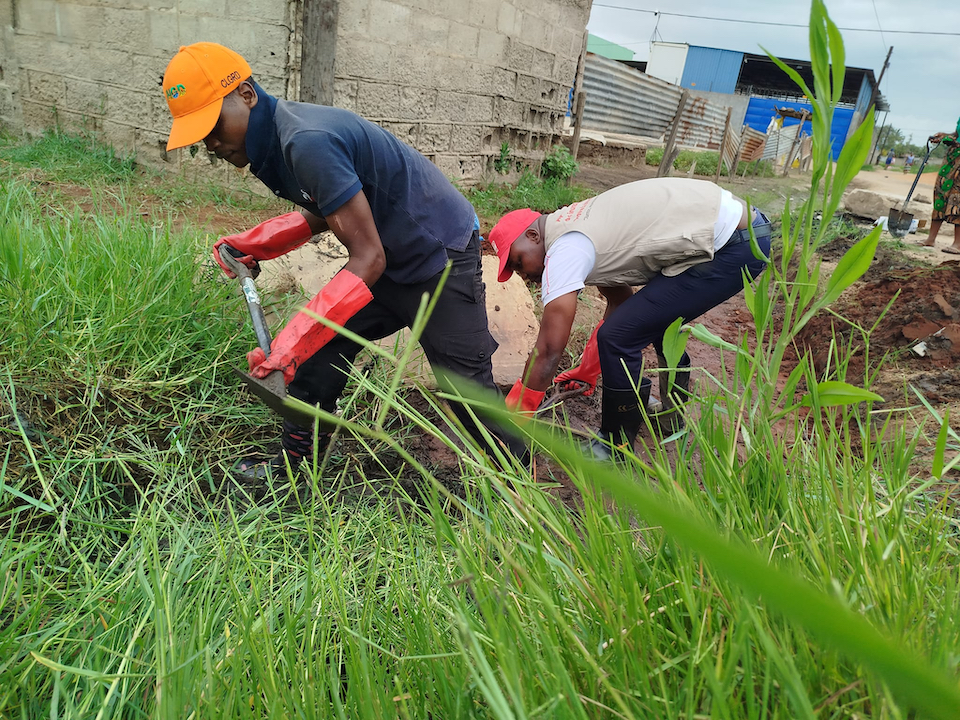The Humanitarian Action Project in Maputo province, implemented by ADPP with funding from Humana Spain, organised a platform for the exchange of experiences between the Local Disaster Risk Management Committees. For four days, the event brought together members of the committees created and trained by the project in partnership with the National Institute for Risk and Disaster Management (INGD).

The meeting was attended by the committees from the neighbourhoods of Bunhiça, Fomento, Nkobe, Nwamatibjana, Sikwama and Tsalala, who discussed strategies for establishing a communication and coordination network for their activities. The main aim was to strengthen mutual support and ensure greater effectiveness in preventing and responding to floods in the communities.
Among the common challenges addressed by the participants were issues related to the opening, cleaning and maintenance of rainwater drainage ditches, hygiene and sanitation. At the same time, the committees shared their work plans, successes achieved, difficulties faced and the need for funding to acquire work materials such as wheelbarrows, saws, helmets, lawnmowers, gloves and more.

The exchange of experiences provided an opportunity for a self-evaluation of each committee, allowing for the restructuring of work plans and the creation of a solid basis for ongoing interaction. Concrete examples brought by the more experienced committees served as inspiration and guidance for the newcomers.
According to Sebastião Mangue, the project's coordinator, the initiative is an essential step towards integrating and strengthening the committees. ‘Since the creation of the committees, we have worked individually with each one. However, we felt the need to bring them closer together by creating a platform where they can exchange experiences. With this, we hope that the older committees will encourage the new ones to face the challenges and persevere.’ - He emphasised.
During the event, the Nkobe neighbourhood committee, which has been active for the longest, shared its journey from its creation to the present. ‘In the beginning, we had nothing, not even uniforms to identify ourselves during mobilisations. We had to raise money to buy orange T-shirts, which are now our trademark.’ - The committee's coordinator, Olga Caratane, emphasised:
The Sikwama neighbourhood committee, which is still growing, presented some of its achievements ‘We managed to clear the neighbourhood's drainage ditches, created a database to identify the houses most vulnerable to flooding and mapped safe areas for accommodation in the event of extreme disasters.’

This session culminated in the practical work of cleaning the water retention basin in the Sikwama neighbourhood, as well as cleaning, opening and maintaining rainwater drainage ditches, and reinforced the importance of cooperation and exchanging experiences to strengthen community resilience and improve local disaster risk management.

